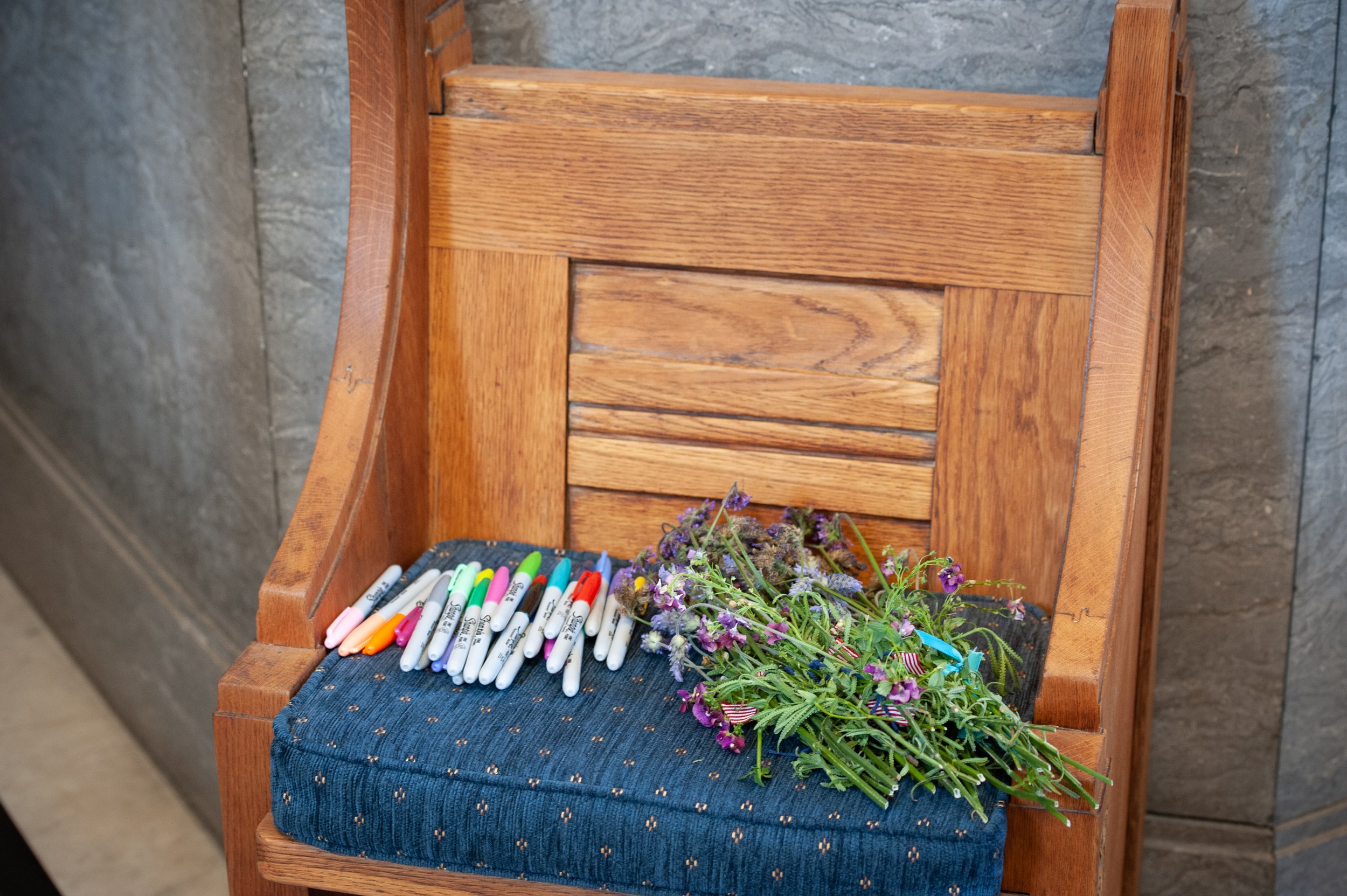Involving children in a funeral service
Talk to them…
People can understandably be quite hesitant about involving children in a funeral service. They worry about whether it will be too upsetting, and want to protect children from those difficult feelings. It can be hard too for children to see the adults in their lives visibly upset. Often it is their first experience of loss, and that opens up new feelings that can be hard for them to process.
As a celebrant, I am often asked about whether I think it is appropriate for children to be at a funeral, or to take part in the service - and my answer always starts the same way.
This is an entirely personal decision. You will know the child, and usually have a gut feeling about how they will handle the day. For some children, it won’t be the right thing and they need reassurance that that’s okay. For other children, it is absolutely the right thing. I suggest gently initiating a conversation with them, and helping them to explore their feelings and make their own decision, with your support as needed. The most helpful thing will be knowing that it’s not a ‘forbidden’ subject, and that they can come to you to talk about it if they need to.
Encourage questions…
Children may have lots of questions, which is a positive thing! If someone they love simply ‘disappears’, apparently without explanation, it can feel confusing and frightening.
Let them know it’s okay to ask questions about what will happen on the day, before, during or after the service. They might wonder about where the person who has died has gone, or what will happen to their body. It can be difficult to answer some of those questions, especially when you are grieving yourself, but children are pretty intuitive and will usually sense when you are holding back. You will know how much detail and information they can handle (and you do need to think about age here), but I would suggest taking it easy and keep checking in to see how they are doing.
Involve them in the funeral planning…
Children can respond really positively to being given a ‘role’ in the funeral, including helping plan the ceremony. Involving them in the planning, even if they aren’t going to be there in person, can really help their grieving process. I always make sure to acknowledge that involvement during the ceremony itself.
Maybe they could pick a favourite song that reminds them of the person who has died. They can help with photo choices, and I’ve seen some really lovely examples where children have created photo boards to remember the person in their family who has died. I led a ceremony recently where a lady’s great-grandchildren spent the morning before the service decorating her wicker coffin with leaves, feathers and stones that they found in the garden and toys that they chose. It was a great way to involve them, and the end result was spectacular.
They can lay a flower, or help light a candle - which is what the siblings of a baby whose funeral I led last year chose to do. As the reflection music played, they each came forward to light a candle for their sister or place a favourite toy at her coffin.
Let them be there if they want to…
It can be a really positive thing having children at a funeral. I will never forget one funeral, just as the daughter of the lady who had died was finishing delivering the eulogy and becoming very emotional, one of her own grandchildren, who had been toddling around chattering away, popped up from behind the coffin and just beamed at her. Her face transformed instantly and she relaxed and was able to finish her speech. It was exactly what was needed, lightened the mood instantly, and was something that his great-grandmother would have been delighted to see.
You might be concerned about whether children will disrupt the service, will want to get up and walk around. I actually welcome that and would never ask for them to sit still and silent for the whole half an hour - or longer. That’s a big ask for young children. One of the loveliest funerals I ever led was the one where I spoke the words of committal as the grandchildren played at the foot of the lectern. It felt really special, and natural.
Demystify the process…
On the day of the funeral itself, I often take children into the chapel or wherever the ceremony is being held so they can see what it is like and get their bearings. It’s especially important if they are taking an active part in the ceremony, say by delivering a reading.
I remember very clearly a young girl of just 8 who wanted to read a graveside poem at her father’s funeral. She and I went up to the grave and together we worked out where she would feel comfortable standing (where she could see her father’s coffin - her choice). She also wanted to look at where he would be going, and once she had seen the grave she visibly relaxed and was absolutely word perfect.
I’ve also seen a boy of 9 give the tribute at his father’s funeral - one of the most incredible things I have ever witnessed. He and I went into the chapel before the service so he could work out where he felt most comfortable standing (at the lectern or not), and see who he would be looking out at as he spoke. Although it was very difficult, he was amazing and delivered one of the most powerful tributes I have ever heard.
Let the children touch the coffin, by way of a final farewell - if that feels appropriate. You need to do what is right for you as a family, and only you can know that. But, as celebrants, we will help you think through the options and work out what a good funeral looks like for you - and the children in your family.




